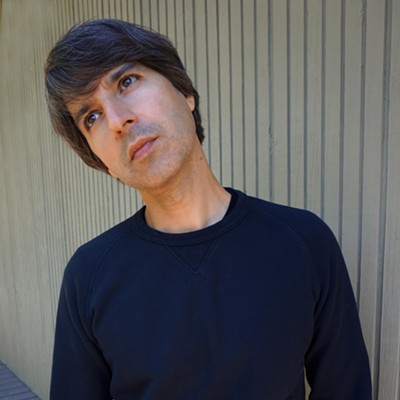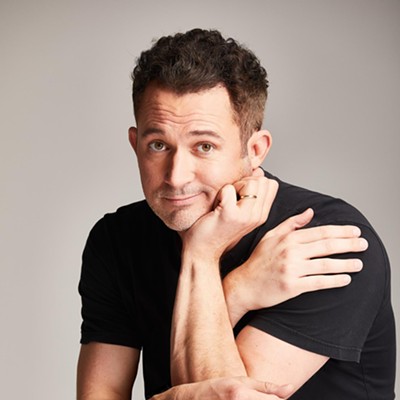His is the real deal, though.
Córdoba has been in the States for almost two years. But he's no drug lord. The Colombian is seeking political asylum in this country due to persecution he's experienced as a human rights worker. So, what does his situation have to do with the War on Drugs if he's just trying to help people in Colombia live a better life?
"Some of us who work for social equality have been killed or forced to leave the country. Some of us were forced to seek refugee status in Colombia, to hide," says Córdoba by phone from his temporary home in D.C.
You can only guess who's doing the killing. The Colombian conflict is being fueled by billions of dollars in United States military aid--money that goes to arming the narco-terrorists.
"While I'm here, I want to share my experiences and help people in the United States understand the conflicts in Colombia," he adds, his words translated by Richard Boren, an organizer with Witness for Peace, the group sponsoring Córdoba's Southwest speaking tour.
Somehow the War on Drugs has shifted to the all-encompassing War on Terrorism that's being fought on a global scale.
"Every few years, there's a new name for what's happening in my country. For a while, it was called the drug war. Then it was called narco-terrorism. In the last couple of years, there's been a more direct link by the United States to call it the War on Terrorism. But the basic conflict is a class struggle between farmers and the upper class."
Is that an accurate shift?
"It depends on how different governments see the situation. The roots of the conflict began with the rampant social inequities. Those issues should be addressed instead of constant armed conflict," Córdoba says.
Colombia's big neighbor to the north could have something to do with the confusion. The United States continues to send billions in military aid to the beleaguered Latin American country.
"To really fight the problems in my country, we'd need to see a change in the way United States resources are being used," he suggests.
But he adds that it's also about how the media spins the situation in Colombia. "It's kind of similar to what's happening with the war in Iraq. It's been said that war is being fought there for specific objectives. But we see that it's just not true. Well, it's happening the same way in Colombia."
Instead, Córdoba wants us to look at Colombia's 50-year internal war on poverty and social inequalities.
"I don't think you can even compare the problems of Afro-Colombians with those of blacks or other minorities in the States. The magnitude is so great. It just seems like marginalized groups aren't offered any solutions. We have such hunger among the ethnic groups and poor peasants. It really becomes a situation of basic survival."
He adds that for Afro-Colombians, close to 80 percent of average daily necessities go unmet.
"So the hope for life expectancy for an Afro-Colombian is 55 years compared with 64 years for other Colombians."
The irony is that this population lives in an area that's rich in natural resources.
"But they're not benefiting from them. The Pacific fishing region where 69 percent of resources are extracted benefit people outside the region. The plight is one of the most delicate and complex of all the groups in the country."
Here's another irony. In 1991, Córdoba was instrumental in helping to draft a new constitution that included unprecedented political, cultural and economic rights for Afro-Colombians. Then, in 1996, when they tried to implement these rights, terror crept in. Black and indigenous populations were subject to volatile persecution, killings and disappearances. Córdoba himself was forcibly displaced from his home.
"Mui irónico," Córdoba adds, without translation.
I asked him what people in this country can do to help.
"Accompany us in our outcry for peace. Get your elected officials to realize that the resources you send should not be weapons, but things that will improve our living conditions and create opportunities to help shift the inequities."
Córdoba adds that we could help pacify his country with opportunities for people to study or work peacefully instead of offering Colombians their only means to earn a living, that of taking up arms. He cites the struggle of the Cacarica self-determination communities that survive through non-violent resistance, as well as outside solidarity movements that have long helped people in other countries in Latin America, including Witness for Peace.
"We just want a change in policy in Colombia. It's that simple."
Afro-Colombian leader Marino Córdoba speaks in Spanish with a translator at 7 p.m. Thursday, Oct. 30, at Southside Presbyterian Church, 317 W. 23rd St. at Tenth Avenue. It's free but donations will be accepted for the Association of Displaced Afro-Colombians. Music and a reception follow.
For details, call 400-7625. Visit www.witnessforpeace.org for more information on solidarity activities in Colombia and elsewhere.







